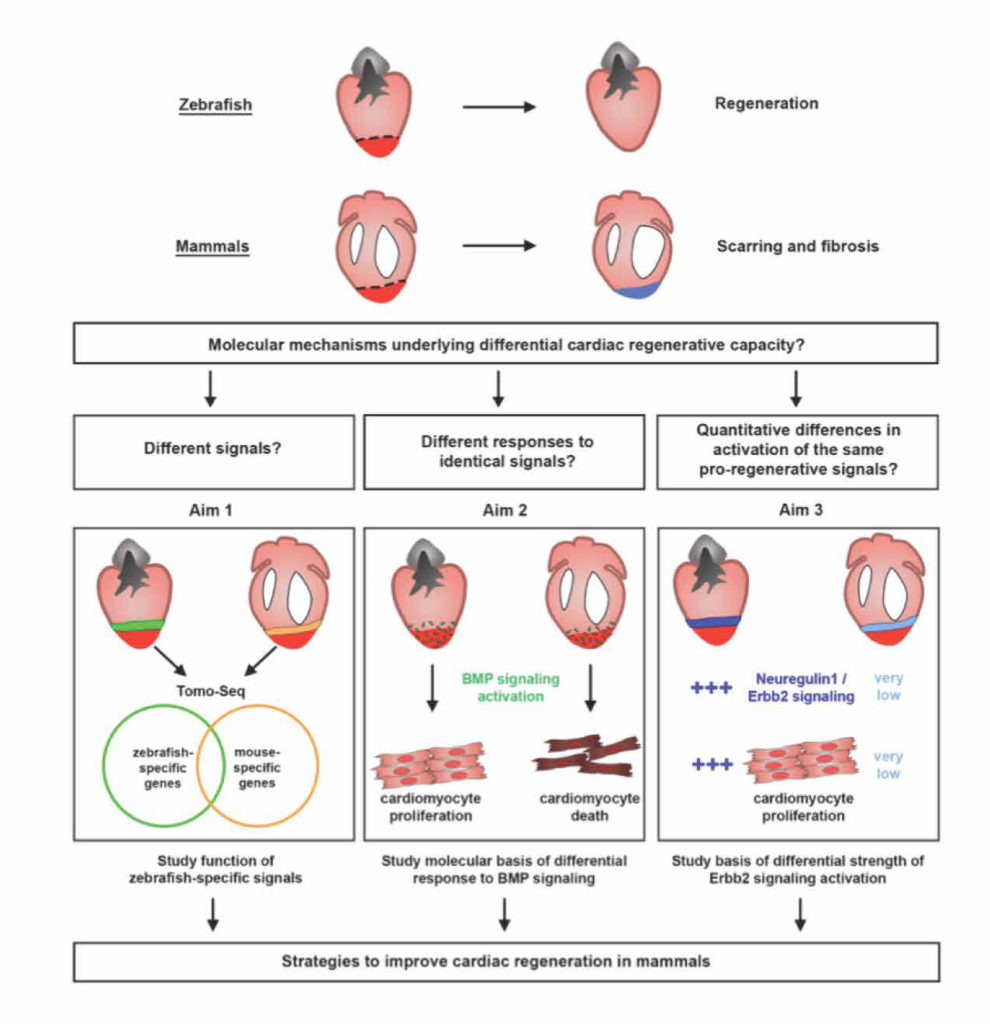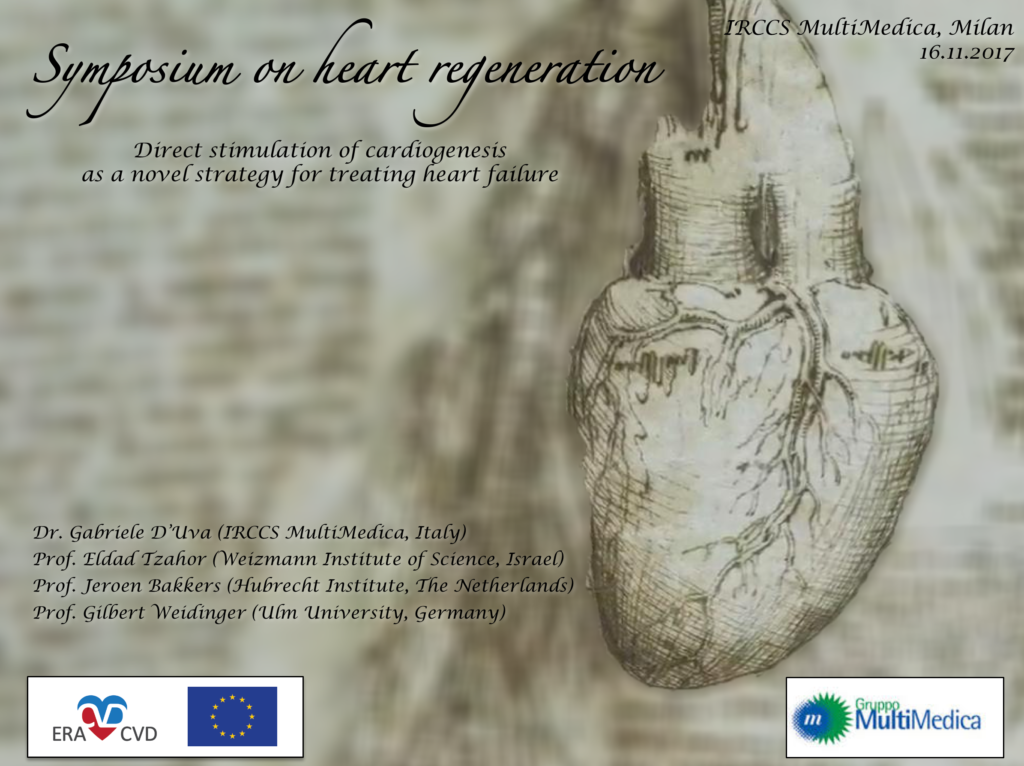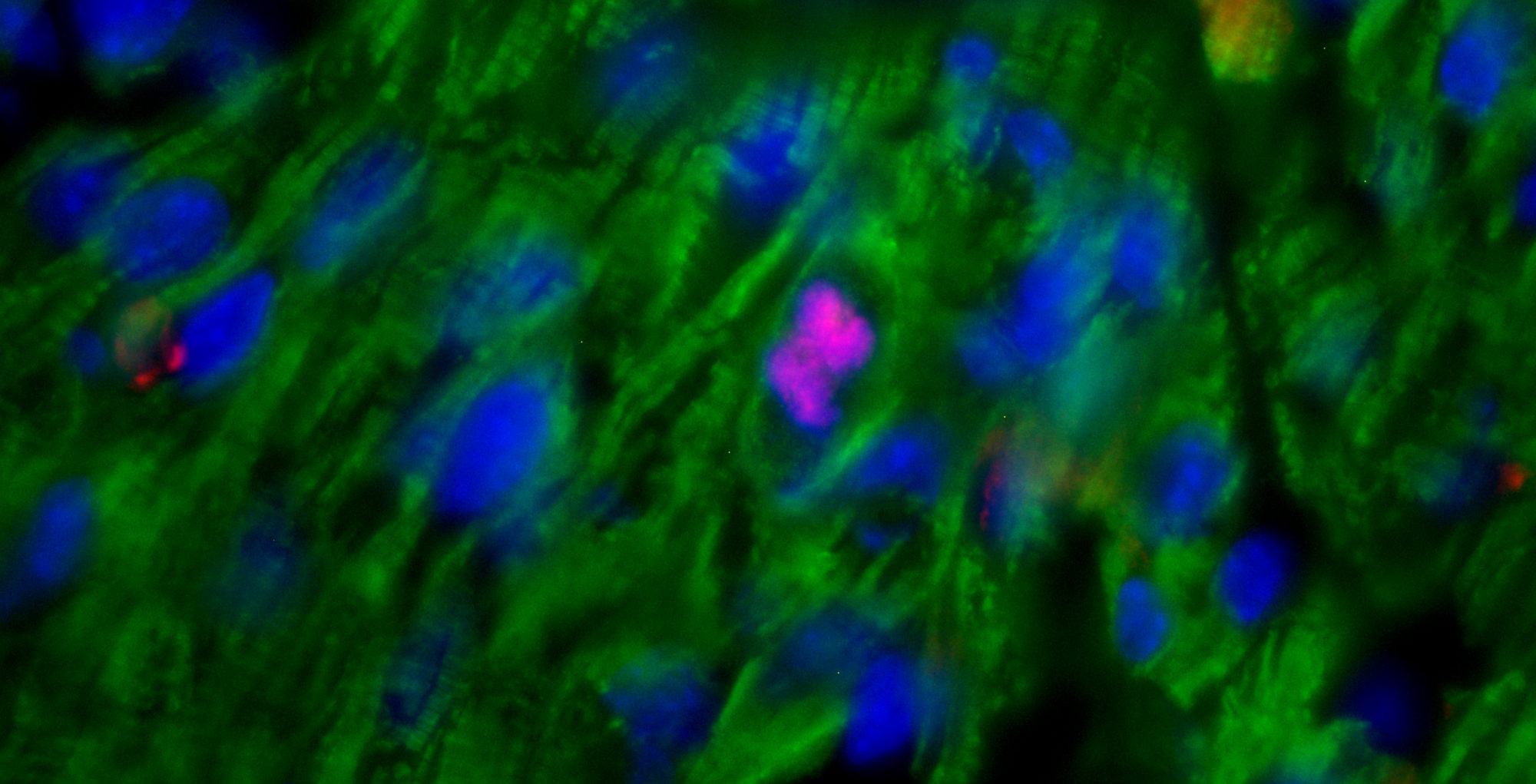Felicissimi di aver vinto il grant “ERA-CVD Call 2016 for Transnational Research Projects on Cardiovascular Diseases” del Programma Horizon 2020 dell’Unione Europea. Questo grant ci da la possibilità di avviare il nostro lab in Italia, nell’IRCCS MultiMedica di Milano!
Il progetto, in collaborazione con l’Hubrecht Institute (Olanda), Ulm University (Germania) and Weizmann Institute of Science (Israele), si propone di investigare la rigenerazione cardiaca tramite un approccio comparativo tra diverse specie.
Ischemic heart disease, such as myocardial infarction, causes a massive loss of cardiomyocytes and leads to the formation of fibrotic scar tissue, resulting in impaired cardiac function and ultimately, heart failure. Recently, it has been demonstrated that myocardium is naturally regenerated in the human heart. However, the rate of replacement is too low to repair large areas of damaged myocardium. Stimulating the very low intrinsic proliferation rate of cardiomyocytes is a promising strategy for cardiac repair in patients with heart failure. To identify such repair signals, this project will use zebrafish, where cardiomyocyte regeneration occurs naturally, and mice, where it does not. Different possible reasons for the difference in the regenerative capacity of lower vertebrate versus mammals will be explored. The goal is to develop regenerative medicine strategies based on endogenous cardiomyocyte capacities.


